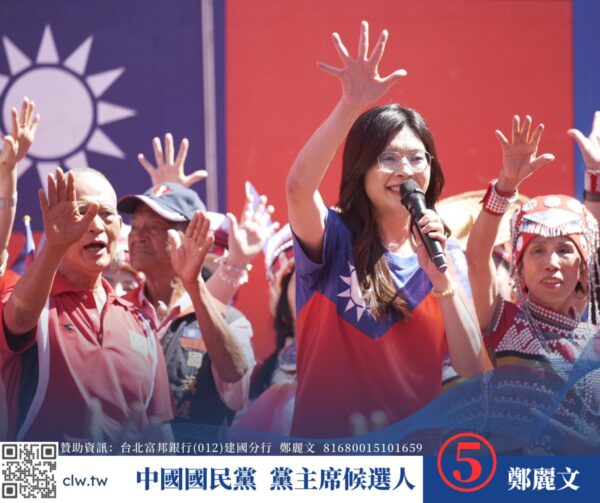On October 18, members of the Kuomintang (KMT), Taiwan’s main opposition party, elected Cheng Li-wun, a relative outsider to the party elite who campaigned on a platform of reform, as their party chair. Although turnout was relatively low, the results were not close – Cheng secured a decisive victory in the six-way race, claiming a more than 10 point margin over her closest competitor, former Taipei City mayor Hau Lung-bin, who had been widely backed by the KMT establishment.
Cheng’s rapid ascent in the KMT is notable for several reasons. First, she was formerly an active member of the KMT’s main political rival, the Democratic Progressive Party (DPP), which has won the last three presidential elections.
As a university student, Cheng participated in the 1990 Wild Lily Movement – student-led protests that opposed the KMT’s 40-plus year run of authoritarian rule and demanded direct presidential elections, among other goals. Far from a moderate inclined toward cross-party collaboration, Cheng was on the assertive end of the DPP political spectrum on issues such as Taiwanese independence and opposition
Continue Reading on The Diplomat
This preview shows approximately 15% of the article. Read the full story on the publisher's website to support quality journalism.
